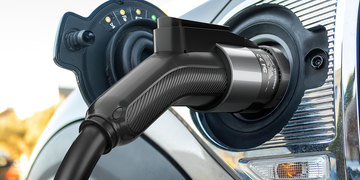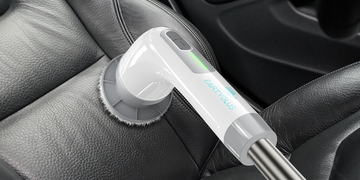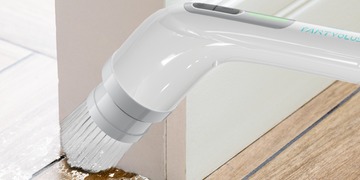While Tesla provides state-of-the-art charging equipment, the standard Tesla chargers don't offer a one-size-fits-all solution to our charging needs. Choosing the best extension cord for Tesla charging requires careful consideration to ensure safety and efficiency. Here are some steps to help you make the right choice:
Electric vehicle (EV) adoption is still relatively in its early stages, and for some, older homes and garages may not yet be suitable for EV charging. Maybe your garage lacks a compatible electrical outlet, or perhaps you have a detached garage that's too far from the main power source. The reality is that a 20-foot charging cable may not always be enough.
However, having a professional install an EV-ready wall outlet or hardwire a charging station can be a costly affair, with expenses adding up due to fees, permitting, and potential electrical panel upgrades. Ultimately, the total cost can hinge on how far your future charging spot is from the power source.
If you're not quite ready to shell out some pretty penny, extension cords could be the solution you're looking for. Understanding how much it costs to charge a Tesla can help you manage your electric vehicle's expenses effectively while using extension cords for charging convenience.

Can I use an extension cord to charge my Tesla?
Check Tesla's Recommendations: Start by reviewing Tesla's official guidelines and recommendations for charging equipment and accessories. Tesla may provide specific guidance on the types of extension cords that are compatible with their chargers.
Cord Length: Determine how far your charging location is from the power source. Choose an extension cord that provides enough length to reach your Tesla without straining the cord. However, keep in mind that longer cords may result in greater voltage drop, so balance length and efficiency.
Cord Gauge: The gauge of an extension cord refers to the thickness of the wires. Thicker gauges (lower AWG numbers) can handle higher currents with less voltage drop. For Level 2 charging, a 10- or 12-gauge cord is recommended to ensure efficient charging.
Amperage Rating: Check the amperage rating of the extension cord and ensure it matches or exceeds the amperage of your Tesla charger. Tesla's Level 2 chargers typically require 40-amp or 50-amp circuits, so choose an extension cord that can handle these levels safely.
Plug and Receptacle Type: Make sure the extension cord has the correct plug and receptacle types for your Tesla charger and the power source. Tesla chargers often use NEMA 14-50 or NEMA 6-50 connectors, so ensure compatibility.
Quality and Safety Certifications: Look for extension cords that are UL-listed or certified by a reputable testing organization. This ensures the cord meets safety and quality standards.
Weatherproofing: If you plan to use the extension cord outdoors, choose a weatherproof or outdoor-rated cord to protect it from the elements.
Durability: Select a high-quality extension cord with durable materials that can withstand the wear and tear of regular use.
Consult a Professional: If you have any doubts or if your charging setup is complex, it's wise to consult with a qualified electrician. They can help you select the right extension cord and ensure your charging system is safe and up to code.
Regular Inspection: Even with a high-quality extension cord, regularly inspect it for signs of wear, damage, or fraying. Replace the cord if you notice any issues.
What Kind of Extension Cord Do I Need to Charge a Tesla?
When selecting an extension cord for charging your Tesla, there are several key factors to consider:
Cable Length and Wire Gauge
The length of the extension cord you need depends on your charging setup and the distance between your Tesla and the power source. Additionally, considering the wire gauge of the extension cord is crucial. It's important to choose an extension cord that is long enough to reach your car without excessive slack, as coiled or tangled cords can overheat and become a safety hazard.
However, avoid using extension cords that are excessively long, as a voltage drop can occur over extended distances, leading to slower charging or potential damage to your Tesla. It's recommended to use the shortest cord necessary to reach your electric car, while also ensuring that the wire gauge is adequate for your charging requirements.
Knowing how to charge your Tesla at home with an extension cord safely and efficiently is essential for maintaining the longevity and performance of your electric vehicle.
Amperage and Voltage Ratings
Another important consideration revolves around the amperage and voltage ratings of your chosen extension cord, as they play a crucial role in determining the safe power delivery capacity.
Tesla vehicles typically have a minimum requirement of 40 amps for charging. In most cases, charging stations, unless they are Tesla Superchargers, operate at a standard voltage rating of 240 volts.
Hence, the most secure choice for your extension cord would be a 240V Tesla extension cord with a 40A rating. This ensures compatibility and safe power transfer for your Tesla charging needs.
When it comes to understanding how much electricity to charge a Tesla, it's essential to consider your specific model and its battery capacity. This knowledge helps you plan your charging sessions effectively and optimize your electric vehicle's performance.
Build Quality
Opt for a high-quality extension cord with durable connectors and insulation designed for outdoor or heavy-duty use. The charging cable should be able to withstand temperature variations and exposure to the elements if you plan to use it outdoors.
Safety Features
Safety is paramount when dealing with electrical connections and extension cords for EV charging. Consider extension cords with safety features such as overcurrent protection (circuit breakers or fuses) to prevent overheating and potential fire hazards. Additionally, look for cords with grounded plugs and sockets to minimize the risk of electrical shocks.
By following these steps and considering these factors, you can choose the best extension cord for your Tesla charging needs while ensuring safety and efficiency in the charging process.





